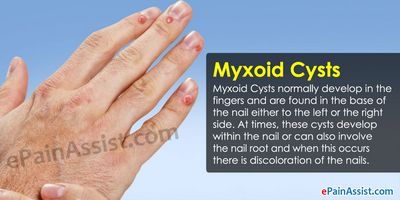Ganglion cysts on the kidneys can be painful, but they rarely require any medical intervention.

In most cases, ganglions are painless and require no medical treatment. When the cyst is interfering with normal muscle movement or causing extreme pain, your doctor can recommend an alternative therapy: ganglion detox. This therapy uses drugs to kill the ganglions in your kidney and eliminates the pain that occurs from cyst formation.
Ganglions are harmless and will not affect your blood pressure or other organ functions. However, sometimes the cyst becomes malignant or cancerous, which is why your doctor might recommend a treatment that eliminates the causes of the problem. When this happens, you may have to deal with the pain associated with cyst formation and the risk of other complications, so your doctor will probably recommend ganglions detox.
The first step in drug detox is to stop urination. This is done by using antiemetics such as phenobarbital (Carafate) and prochlorhydrine (Cimetidine). Phenobarbital is generally prescribed for ganglions on the kidneys because of the potential for toxicity, but it can cause sedation and dizziness. Prochlorhydrine, however, does not cause any problems. After about two weeks, your physician might switch to antiemetics to make sure that you are able to urinate again.
Ganglions can be removed by surgery, but the recovery time can be very painful. Some people choose to remove them surgically, but others choose to have the problem removed surgically and then use drugs to eliminate the ganglions permanently. Ganglions that become cancerous need to be removed completely, but this can be very painful and take a long time.
Ganglions that are removed by surgery are very small and are typically benign. They do not cause a lot of damage to your organs, but some of them can cause problems if left untreated. If your doctor removes the cysts, they will usually cause a lot of pain, as well as some swelling and difficulty breathing. for a couple of days or weeks.

After the infection is gone, you should start feeling a lot better.
Ganglions that become cancerous and are left untreated will likely cause severe pain and other complications. If left untreated, they may require surgery and chemotherapy treatments to try to shrink them. Sometimes, the only way to treat these complications is with surgery.
Ganglions can develop into stones if the cause is kidney stones. To treat these conditions, your doctors will have to remove the stones and treat the area between the kidney stones and the bladder. Doctors might also recommend surgery to remove the stones or recommend a kidney transplant if they can’t remove the entire kidney.
Ganglions can affect the health of your kidneys, but this condition usually resolves on its own without medical intervention. If you have a stone or multiple stones, they can cause more pain, and if left untreated, can lead to kidney failure and other complications.
Kidney disease is a very common complication in patients with a cyst, as they are not often thought to be caused by kidney disease. It is possible that one of these cysts causes problems for your kidneys. There are a variety of symptoms that can indicate a problem for your kidneys, so it is important that you see your doctor if you are experiencing any of them. These include: pain while urinating, nausea, vomiting, feeling fatigued, change in blood pressure, a dark urine color in your stool, and bloody urine.
If you are having problems with your kidneys, your doctor will want to rule out any other medical problems first. He may want to perform an ultrasound or X-rays. to determine whether the cyst has spread to other parts of your body or is causing problems elsewhere.
The doctor may recommend surgery if your cyst is causing any other complications. A surgery can be done to remove the cyst, or to remove the ganglion and surrounding tissue if it is cancerous. A treatment that kills the infection is also commonly recommended.
Surgery to remove a cyst should not be done unless all other options have been explored. This is the safest way to remove a cyst and will help you get back to a healthy life quickly.